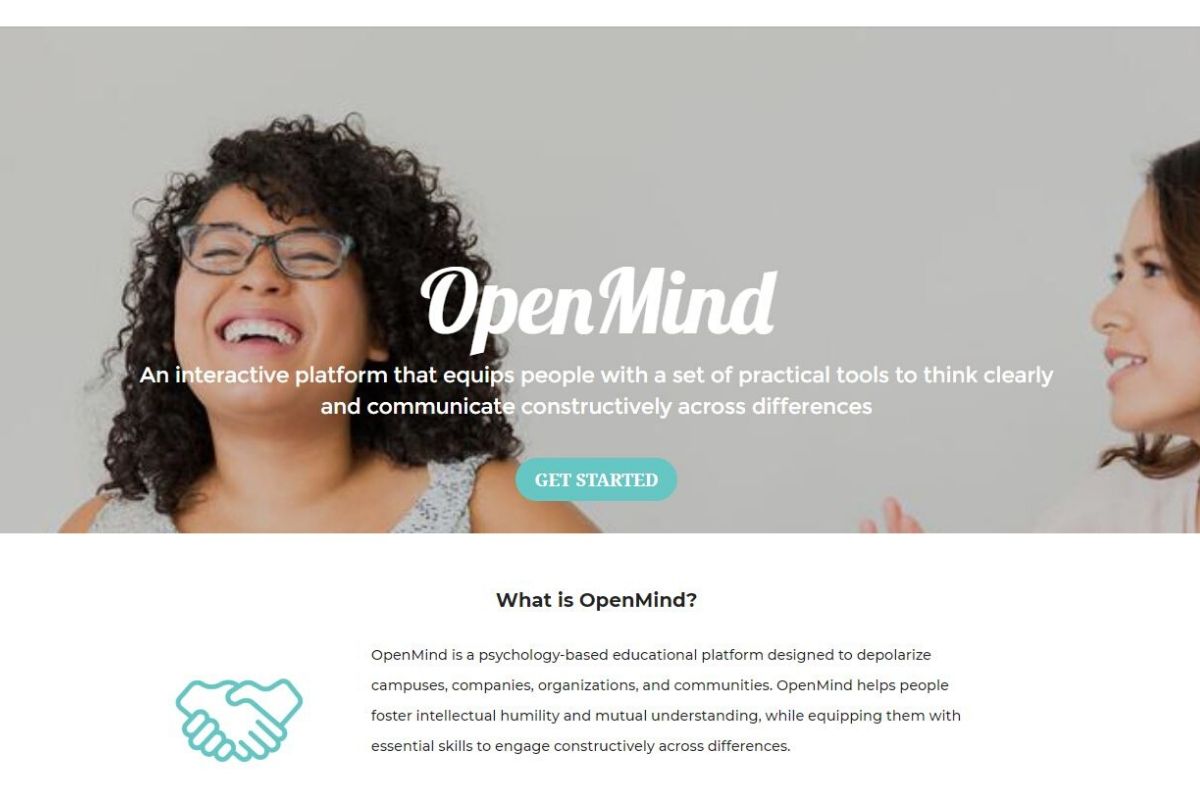
So I just finished reading the book: The Coddling of the American Mind – How Good Intentions and Bad Ideas Are Setting Up a Generation for Failure.
It is all about trying to understand (from the perspective of social psychology) why debates in academia and in the general public seem to be getting more polarised and aggressive over time and what we might be able to do to address it.
The book mentioned an online course called OpenMind.
“OpenMind is a free, interactive educational platform designed to depolarize classrooms and foster mutual understanding across differences. It teaches essential concepts from social and moral psychology to help students cultivate intellectual humility and open-mindedness while equipping them with the skills for civil and constructive dialogue.”
‘Huh?’ was my initial reaction to this description but having enjoyed the book, I couldn’t resist registering for the course and having a look. A couple of hours later I had finished the whole course.
Gold star for me

What the hell is the course about?
Put as simply as I can, the course teaches you about how humans think and shows how to apply this understanding to having better and more constructive interactions with other people.
There are five main sections to the course. Each section takes about 15-20 minutes to complete.
- The Irrational Mind – why the way our minds work make us self-righteous hypocrites
- Fast (emotional) and slow (rational) thinking
- The Rider and the Elephant
- Cognitive illusions and how we all fall for them
- Why people come to different conclusions on topics of moral importance
- The moral beliefs of the communities we belong to
- The moral foundations underpinning most moral beliefs and how to identify the moral foundations that others are building their arguments on
- Intellectual Humility
- Overconfidence in our beliefs and knowledge
- Admitting that we are wrong
- Disagreements as opportunities to learn, not competitions
- The vale of diverse perspectives
- Blind spots in our own perspectives
- Talking with people we disagree with
- How to have constructive disagreements
- Our opponents as allies
- Cognitive distortions and negative automatic thoughts as barriers to accurately understanding the actions of others
- How to tame another person’s elephant
Why should you do it?
The quality of your thinking influences the decisions you make, your relationships with others and your emotional experiences. It also influences how well you can persuade and convince others of your viewpoint.
Improve your thinking, improve your life, improve your impact on the world. Thinking quality is central to many philosophical (e.g. Stoicism), psychological (e.g. CBT) and educational (e.g. Critical Thinking) approaches to living a happy and healthy life and making a contribution to the lives of others.
This course is one of the better examples I have seen of educational programs that give tangible advice on how to improve your thinking. It is engaging. Content is nicely broken up into digestible chunks. The examples used to illustrate points are realistic and topical. The suggestions for how to incorporate the ideas into your life are practical and achievable.
You’ll leave this course with ideas and techniques you can start applying immediately to having more productive conversations with others, especially on topics where you might disagree.
For me, the course reinforced my intention to spend more time exposing myself to viewpoints and ideas that are in contrast to my existing beliefs.
What to expect?
From this page, select “Get Started > Individual User”.
You’ll need to register with an email and password.
The authors ask you to complete a brief questionnaire at the beginning and end of the course that tap into the strength of your convictions about your beliefs and willingness to entertain different ideas.
It took me about 2 hours to get through the whole course. I did it in a single sitting. You could spread it out over a week or two.
The writing style is engaging and concise and whilst the course is predominantly text and images, you’ll find that it is put together in a way that makes interacting with it easy.
Each module includes some ‘life hacks’ where you are invited to apply the main principles from the module in your everyday life. These aren’t onerous homework exercises, just invitations to interact with the world in a slightly different way.
The data you provide in completing the course will be used anonymously for research purposes.
You’ll find some of the topics discussed in the program to be American-centric (e.g. mentions of gun laws) but most of the content applies to the Australian context.
If you do the course, let me know what you thought….

